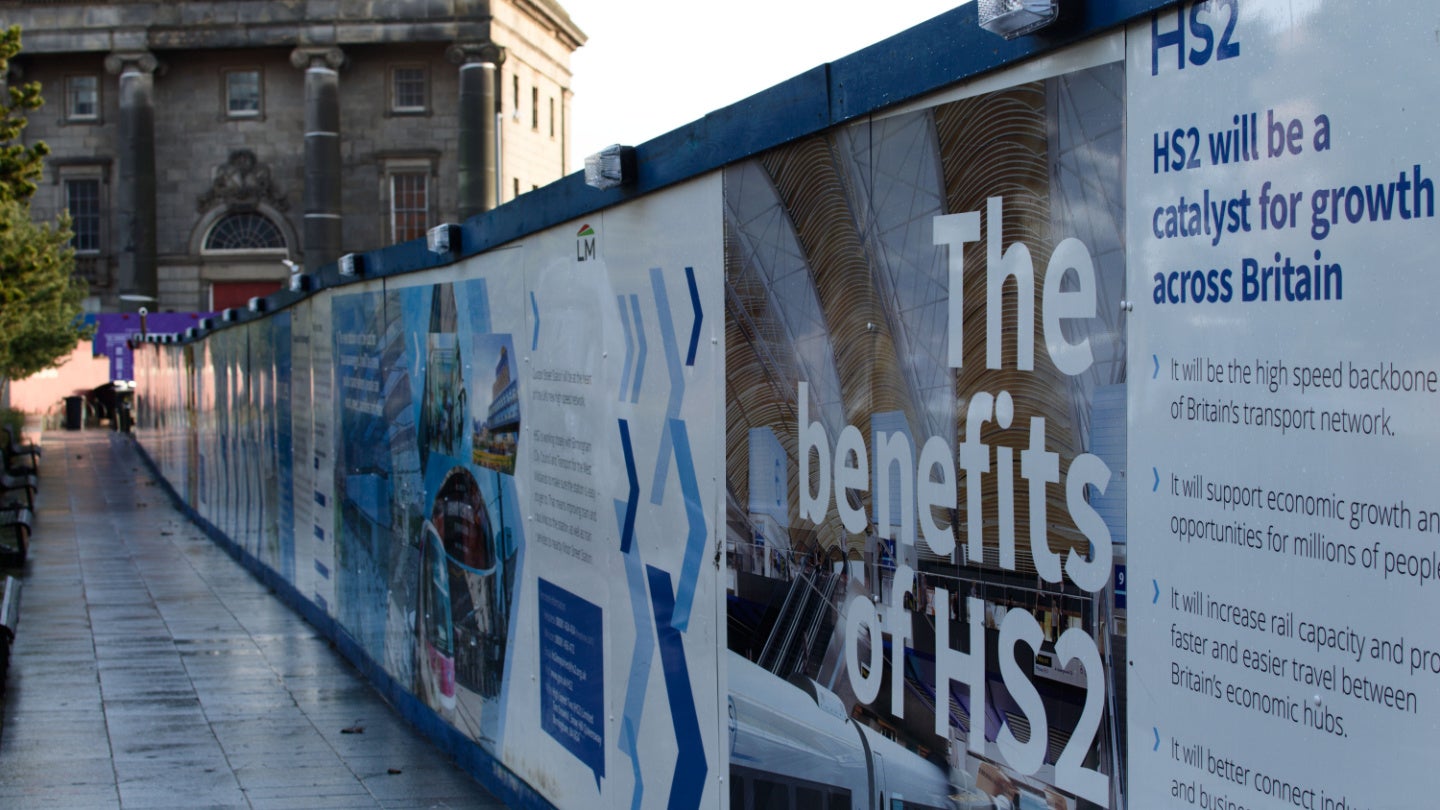
UK Prime Minister Rishi Sunak announced the shelving of the West Midlands-Manchester HS2 line yesterday (3 October) during his address at the 2023 annual Conservative Party Conference.
The high-speed rail line was set to be one of the biggest infrastructure projects within the UK and, had it been built, would have aimed to be the “most sustainable high-speed rail network” in the world according to HS2’s sustainability report.
This report also states that the project intended to be entirely carbon neutral in both HS2’s construction and eventual running.
Instead, Defence Secretary and former Transport Secretary Grant Shapps confirmed to the BBC that HS2 trains would still run on existing railway lines to Manchester from Birmingham.
Associate analyst at GlobalData, Megan Cross, said that the decision to scrap HS2 could present challenges for the future of green technology in the UK.
“HS2 has been a topic of environmental debate, with proponents arguing that it could serve as a more sustainable alternative to air and road travel,” Cross explains, “This decision has the potential to set a precedent for the future of other sustainable infrastructure projects.”
Cross notes that the number of people travelling by car or domestic flight within the UK has increased recently.
“Rail is no longer the first choice for people traveling within the United Kingdom. HS2 was to become the preeminent zero carbon alternative for long-distance travel,” Cross said.
“Ultimately, this shift in focus could potentially hinder the development and adoption of other ‘green’ technologies, redirecting attention away from large-scale sustainable alternatives to road and air travel,” Cross added.
Cross’ concerns around the future of the UK’s green technology sector are shared by industry insiders.
Tim Langley, director of Manchester-based tech company Go Live Data, said that scrapping HS2 is “one of the worst decisions” the UK government could have made for northern tech and business sectors.
“We use technology extensively in our work with Zoom and so on. But there’s nothing like meeting in the flesh and shaking hands. Business thrives on relationships and relationships are built face-to-face,” Langley said.
Langley said that he believed the UK was already at risk of falling behind other European countries in terms of business investment, and that failure to invest in future green transport tech could widen this gap.
“If the government isn’t investing in business, why would anyone else?” Langley asked.
Langley, like many other businesses, is asking about alternatives to HS2. If HS2 trains do go ahead and run on existing tracks, journey times will not be any shorter than existing ones and the trains would subsequently not run as fuel efficiently.
Running the same HS2 trains on old tracks could hinder the UK’s chance of developing its tech sector in areas outside of London and Southern England.
The Mayor of Greater Manchester, Andy Burnham, voiced these concerns on X (formerly Twitter).
Speaking at Greater Manchester’s Green Summit, Burnham stated that carbon neutral technology was an essential part of re-industrialising the North of England.
Full details of the UK government’s replacement plan in lieu of HS2 are to be announced by Rishi Sunak at some point during the Conservative Party Conference.







